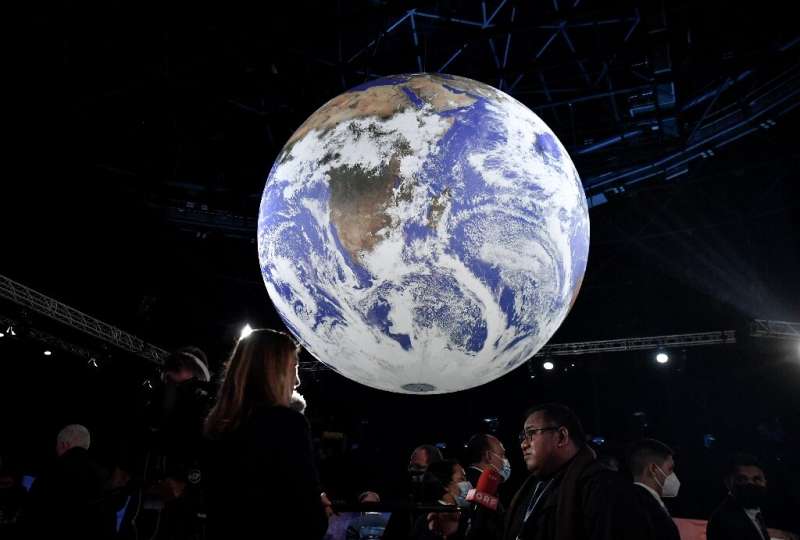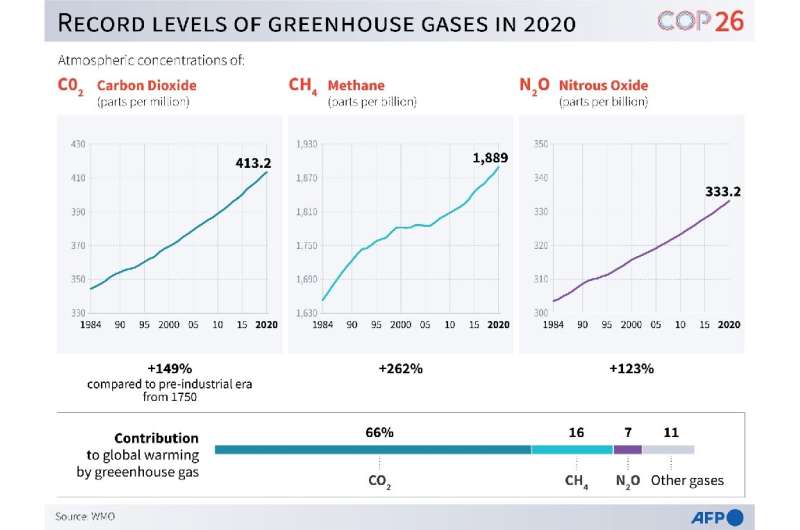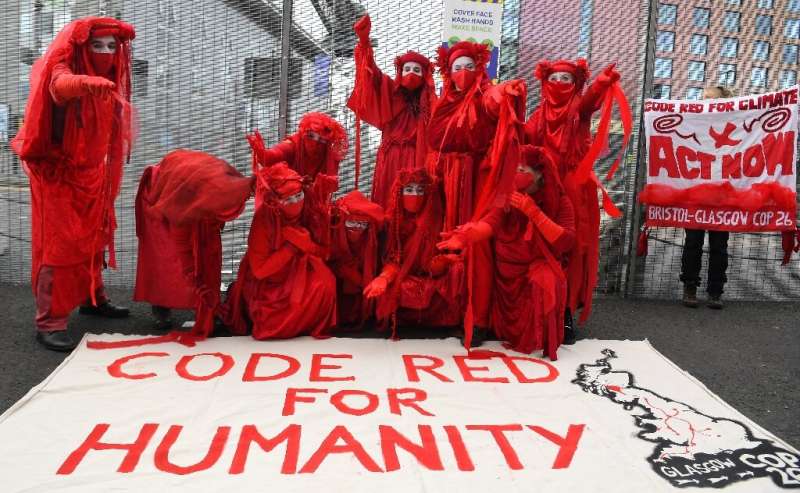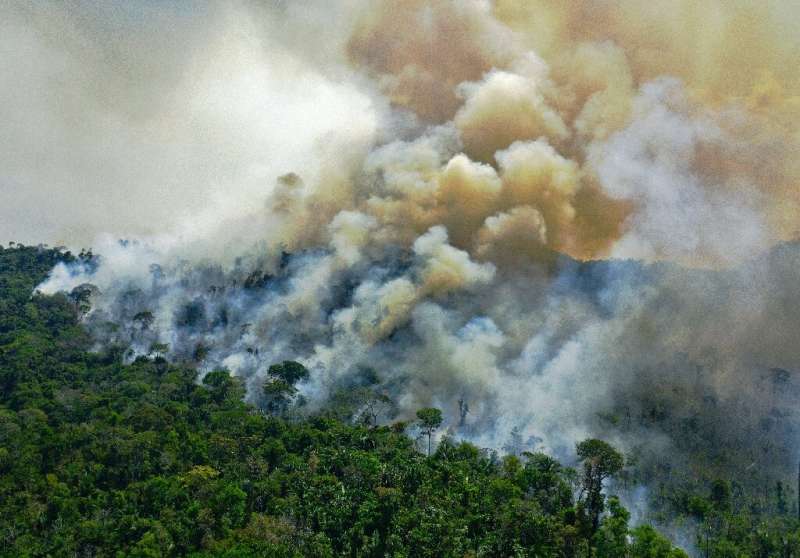Leaders commit to 30% methane cut at climate summit

Dozens of countries on Tuesday joined a United States and European Union pledge to cut emissions of methane—a potent greenhouse gas—by at least 30 percent this decade, in a major commitment for climate action.
The initiative, which experts say could have a powerful short-term impact on global heating, followed an announcement earlier Tuesday at the COP26 climate summit in Glasgow in which more than 100 nations agreed to end deforestation by 2030.
"One of the most important things we can do between now and 2030, to keep 1.5C in reach, is reduce our methane emissions as soon as possible," said US President Joe Biden, referring to the central goal of the 2015 Paris agreement.
He called the pledge, which has so far been signed by nearly 100 nations, a "game-changing commitment" that covered countries responsible for around half of global methane emissions.
European Commission head Ursula Von der Leyen said that the methane cut would "immediately slow down climate change".
"We cannot wait until 2050. We have to cut emissions fast and methane is one of the gases we can cut the fastest," she said.
Heads of state and government are gathered in Glasgow for a two-day high-level summit that host Britain is hoping will kick start ambitious climate action during the two-week COP26.
Organisers say the outcome in Glasgow will be crucial for the continued viability of the 2015 Paris Agreement temperature goals.
While the summit's first day passed with much rhetoric but only lukewarm climate pledges, Tuesday's twin announcements were broadly welcomed by campaigners.

The laundry list for COP26 remains daunting, however, with pressure on leaders to commit to faster decarbonisation and provide billions to nations already dealing with the fallout of climate change.
British Prime Minister Boris Johnson told reporters he was "cautiously optimistic" about the progress made so far.
But he warned that "there is still a very long way to go" before any meaningful deal.
Stronger than CO2
Decades of climate pledges have been rooted in reducing carbon dioxide emissions. Yet methane (CH4) is more than 80 times more potent than CO2, and its sources, such as open pit coal mines, gas leaks and livestock, have received relatively little attention until now.
The International Energy Agency estimates that the fossil fuel industry emitted 120 tonnes of methane in 2020, and much of it can be easily avoided.
A UN report from earlier this year showed that "available targeted methane measures" could see CH4 levels reduced by 45 percent by 2030.
This would shave 0.3C off projected warming, save a quarter of a million air pollution deaths and increase global crop yields by 26 million tonnes, the UN's Environment Programme (UNEP) said.
UNEP also says all emissions must fall 45 percent by 2030 to keep 1.5C in reach.

"Methane is a greenhouse gas strongly associated with the fossil fuel industry... evaporating from coal mines, from oil and gas extraction and from pipelines," said Kat Kramer, Christian Aid's climate policy lead.
"Methane is but another reason why the fossil fuel industry has to end."
However, major emitters China, India, Russia and Australia did not sign the pledge.
WWF climate expert Vanessa Perez-Cirera WWF said she would like to see "all signatories to the Paris Agreement sign up".
Access issues
Earlier Tuesday, countries made a multibillion-dollar pledge to end deforestation by 2030.
But the promise was met with scepticism from environmental groups, and although details were sparse, it appeared to largely resemble a similar pledge made by more than 200 countries and organisations in 2014.
The British government said that the plan to drum up around $20 billion in public and private funding had been endorsed by more than 100 leaders representing over 85 percent of Earth's forests, including the Amazon rainforest.
The summit pact to "halt and reverse deforestation and land degradation by 2030" encompasses promises to secure the rights of indigenous peoples, and recognise "their role as forest guardians".

While Johnson described the pledge as "unprecedented", a UN climate gathering in New York in 2014 issued a similar declaration to end deforestation by 2030.
An assessment earlier this year found that seven years on from the pact, virtually no government was on course to fulfil their responsibilities.
"Signing the declaration is the easy part," UN chief Antonio Guterres said on Twitter.
"It is essential that it is implemented now for people and planet."
Meanwhile, chaotic scenes continued on Tuesday around the COP26 venue, with attendees queueing around the block awaiting security checks.
By early afternoon, the UN organisers sent a text alert asking people to stay away from the venue "in order to ensure compliance with Covid-19 measures".
Accessibility issues in the locked down city centre were highlighted as Israel's energy minister, who uses a wheelchair, was unable to enter the venue on Monday.
© 2021 AFP





















